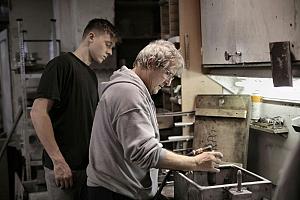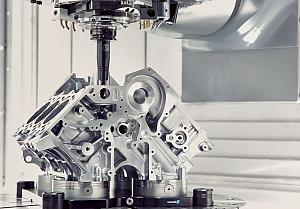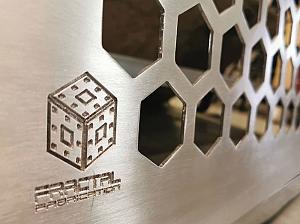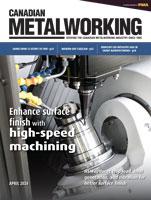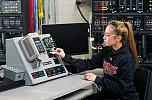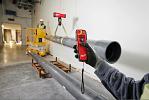- FMA
- The Fabricator
- FABTECH
- Canadian Metalworking
Building a culture of learning
Encouraging and empowering employees and leaders to instigate and accept change is the process to create a learning organization.
- By Matt Elson
- February 14, 2016
When it comes to the topic of continuous improvement in manufacturing, many consultants, "Lean" books and conferences tend to put a lot of emphasis on “tools” like work standards, value stream mapping, 5S, kanban, andon, heijunka box, etc. But continuous improvement is more about building the capacity of employees to see opportunities for improvement every day and every hour while developing the leadership ability to sustain this culture. This is a true business excellence system, where through increased employee capacity for change and improvement a company develops into a true learning organization.
Encouraging and empowering employees and leaders to instigate and accept change is the process to create a learning organization; getting staff to change the way they do their work is crucial in order to realize long-term improvements to safety, quality, quantity and cost.
While continuous improvement tools are useful for various types of problem solving, in a true improvement system the tools are only used for developing capacity for change in employees—it develops critical thinking as well as improving problem solving skills.
Improvement and coaching go hand-in-hand as part of an operation’s management system. An over-emphasis on implementing tools without providing proper context or employee empowerment is why most (anywhere from 80 to 98%) of “lean transformations” fail to achieve any actual short- or long-term results.
True Kaizen activities can typically result in extraordinary business results. Based on my own experience in multiple industries and countries around the world these improvements can be in the range of 100 to 200% increases in productivity, 80 to 98% reductions in scrap or re-work, 80 to 90% reduction in lead-time/inventory, as well as great advances in safety, cost and delivery.
The reason that most organizations don’t achieve the results is not that this thinking process doesn’t apply, but rather the focus and effort is misplaced.
Effort on improving processes or systems alone isn’t enough. Improving our leadership is crucial, which includes the coaching and development of others. This coaching is what actually results in the process improvements, not the other way around.
Coaching is the consistent and focused process of changing behavior through practice and repetition. Just like the athletic coach or music instructor, the improvement coach guides a learner through a series of steps specifically designed to improve experience and skill.
It is the repetition of these steps, over and over again, that results in the increased capabilities. This could be why the emphasis on tools remains so strong; experienced coaches seem to focus on them relentlessly. In reality, the coach is focusing on forcing the learner into a new routine…the tools and techniques are just the easiest things
to copy.
However, coaching cannot be done on its own without the ability to evaluate a situation. Does the current condition match our target condition? Is this abnormal or normal? Is the process stable or not?
Without facts we have no way of knowing if we are actually getting better or worse. This is why an important aspect of an operations management system has to be measuring what is important to the business and comparing this to the company’s goals and targets. This is the framework that any coaching and improvement efforts will be based on. Only after we have a method to establish our baseline is it possible to start the improvement journey through coaching development.
This is why we view all of these concepts as a complete integrated system within an organizational culture. This system has been represented in four parts, each focusing on different aspects of an innovative and people-based organization.
In upcoming issues of Canadian Metalworking, this column will feature a continuing series looking at each part of this integrated system, while also detailing the improvement and coaching method to systematically accelerate the pace of learning, innovation and performance in your organization.
Matt Elson, founder of True North Thinking, works with companies worldwide implementing the Toyota Production System and continuous improvement. Starting at Toyota Motor Manufacturing Canada, Matt has worked with the Toyota Production System Support Center (TSSC) along with other global companies like ZF-TRW Automotive, Bombardier Aerospace and Magna International. He can be reached at www.truenorththinking.ca.
subscribe now


Keep up to date with the latest news, events, and technology for all things metal from our pair of monthly magazines written specifically for Canadian manufacturers!
Start Your Free SubscriptionAbout the Author
- Industry Events
MME Winnipeg
- April 30, 2024
- Winnipeg, ON Canada
CTMA Economic Uncertainty: Helping You Navigate Windsor Seminar
- April 30, 2024
- Windsor, ON Canada
CTMA Economic Uncertainty: Helping You Navigate Kitchener Seminar
- May 2, 2024
- Kitchener, ON Canada
Automate 2024
- May 6 - 9, 2024
- Chicago, IL
ANCA Open House
- May 7 - 8, 2024
- Wixom, MI




